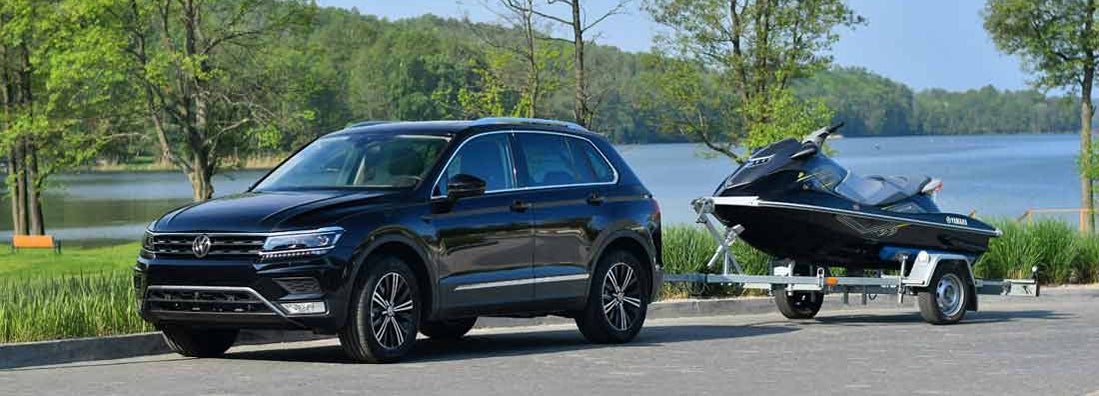Utility Trailer Insurance
(Everything you need to know - and more)

Utility trailers come in many different dimensions, from a fairly small 4 x 6’ rack style trailer to a large two-axle 19’ trailer that can handle loads of 10,000 pounds or more.
Whether you haul brush, you transport gear and ATVs to your summer cabin, or you’ve got a commercial operation such as a landscaping, farming or construction company, you may have one of these trailers. Do you need to cover it with utility trailer insurance?
To get the information you need about insurance for your utility trailer, meet with a local independent agent who can answer your questions about any applicable state requirements and provide quotes from several different insurance providers. Find an agent today to get the insurance coverage you need to protect your investment.
Utility Trailer Safety Tips
- Load your trailer with more weight in front of the axle than behind. Too much weight behind the axle could cause the trailer to tip, potentially losing cargo
- Always use safety chains. They should be heavy enough to support not just the trailer, but the cargo loaded onto it as well
- Don’t exceed your trailer’s maximum load capacity; this figure should appear with your vehicle identification number
Even if you are experienced at hitching, loading and maneuvering your trailer, accidents can still happen. Making sure you have the proper insurance on board can protect you from the unexpected costs of an accident.
Some Uses of a Light-Duty Trailer
People use utility trailers in a variety of ways, both for personal and commercial use. Some common uses utility trailers include:
- Transporting ATVs, snowmobiles or motorcycles
- Hauling tools and equipment for landscaping, janitorial or pest-control services
- Hauling sports gear for a school or club team
- Transporting work vehicles such as skid loaders for construction or landscaping
Personal vs. Commercial Use: Does It Matter?
Utility trailers are very handy in that they can be used for either personal or commercial use.
You may or may not need additional utility trailer insurance for your personal use, but having commercial insurance could be extremely important in the event of an incident during working hours or on another person’s property.
An independent agent in our network can be an excellent resource for information regarding the laws and regulations in your local jurisdiction.
Working with an agent means you can make sure you have the specific coverage you need to protect your investment in your trailer if you are liable in an accident.
Be sure to inform your agent of the purpose of your trailer. Trailers used for personal purposes require different levels of coverage than a commercial trailer.
A commercial trailer is typically used more often, and accidents can potentially involve workers, job sites and the property of clients, which means there is a higher risk of claims.
Do I Need to Insure My Utility Trailer?
In most states, insuring utility trailers for personal use is not required, though it is almost always a good idea. One reason to insure your personal-use trailer would be if you have a large amount invested in the trailer and/or its contents. It's also a good idea to have theft protection in case your trailer is stolen.
If you use the trailer for business, however, many states will require some level of insurance coverage, as well as registration and regular safety inspections on the trailer. In most cases, if you are financing your trailer, the lending institution may require you to have some insurance until you pay off the loan.
Doesn’t My Vehicle Coverage Extend to My Utility Trailer?
Your auto insurance may cover your utility trailer if it is exclusively used for personal purposes. If you buy your utility trailer after you buy your vehicle policy, you may not have coverage on the trailer until you specifically add it to your policy. Some policies will grant you a window in which to add a trailer.
However, in some states the policy may automatically extend to the trailer, but may include liability coverage only. It is important to check your vehicle policy to determine whether you have this coverage.
In any event, vehicle coverage would only extend to the trailer as long as the trailer is attached to the vehicle. If you unhitch it to store it, your vehicle coverage will not usually protect your trailer.
How Much Coverage Do I Need and What Does It Cost?
Utility trailer coverage typically pays for damage to the trailer as well as theft of the trailer or its cargo. The amount of coverage you need likely will be based on the value of the trailer and the contents.
The premium can be less than $100 a year for a personal-use trailer, and up to several hundred dollars a year for a commercial-use trailer.
How Can I Get Utility Trailer Insurance Quotes?
When you are ready to review your coverage options and compare utility trailer insurance quotes, a local insurance agent can help.
Because they are independent, these agents can research quotes from a number of different companies and can find the coverage you are looking for at a price you can afford.
Not only that, but if you do use your trailer for commercial purposes, your agent can help you get all of the commercial coverage you need in one place.
Find a local independent agent today to get started comparing your utility trailer insurance options.
